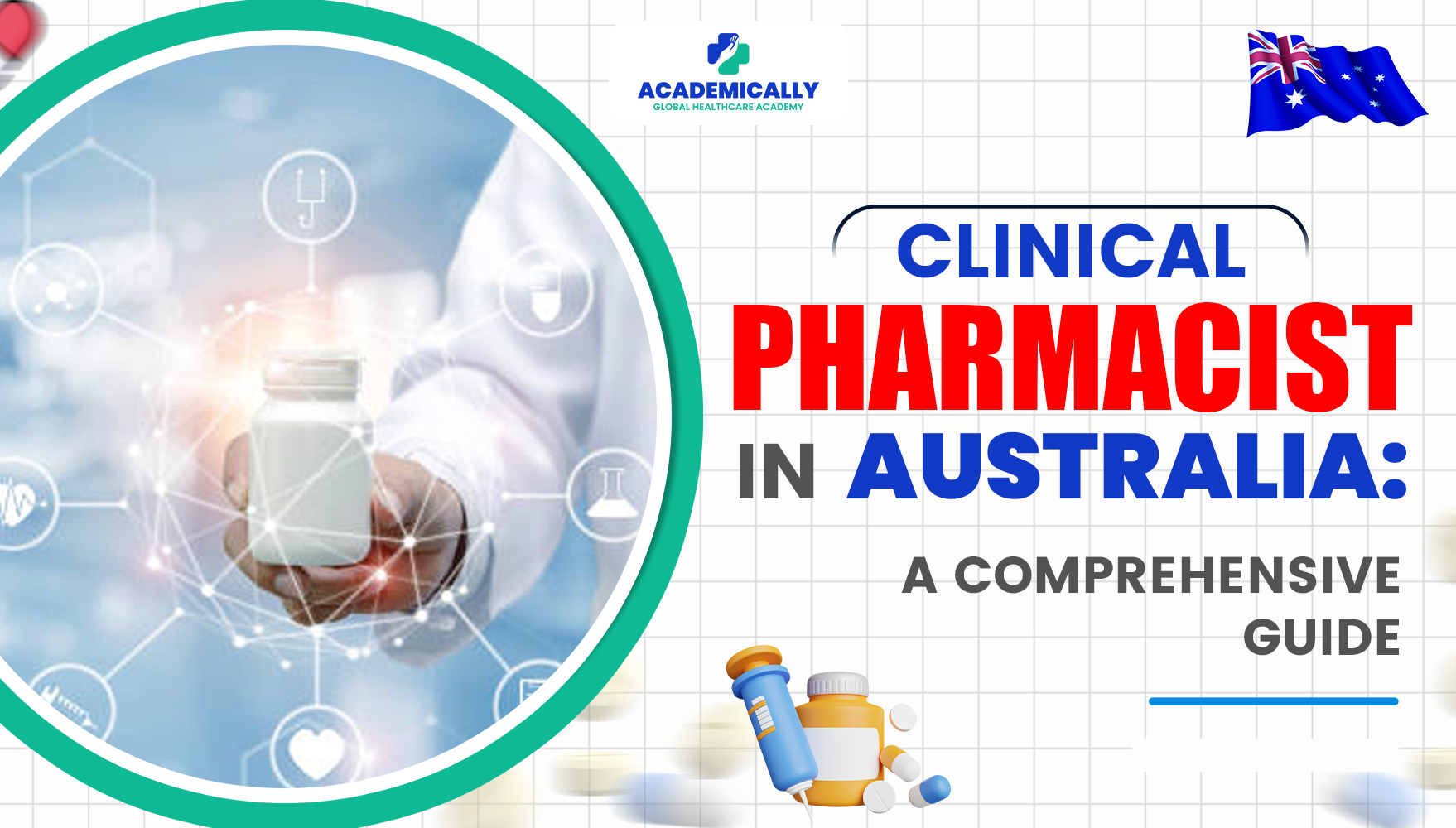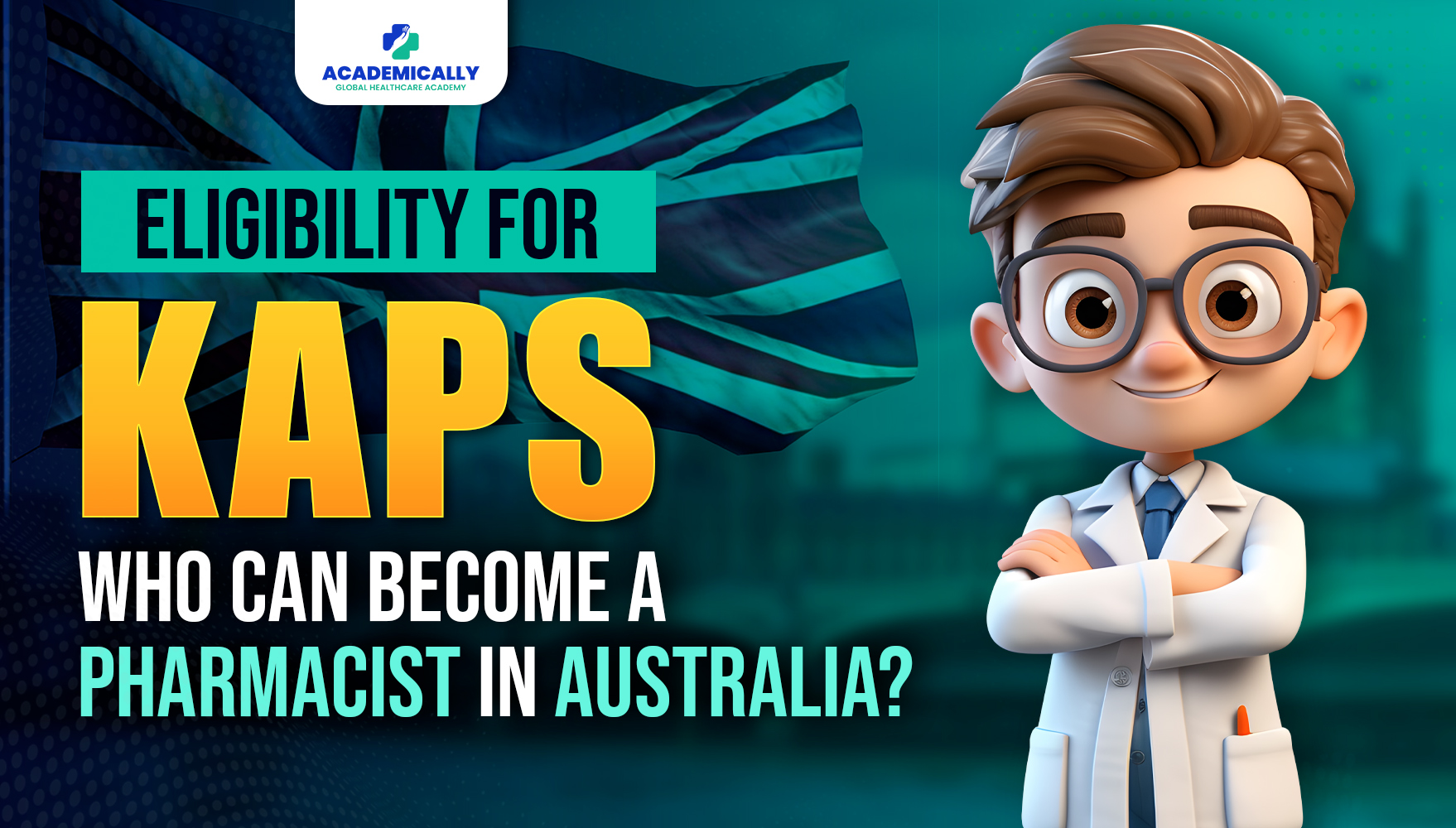What is a Clinical Pharmacist?
A clinical pharmacist specialises in the safe and effective use of medications. Unlike traditional pharmacists, Clinical Pharmacists are directly involved in patient treatment plans, working alongside doctors and nurses to optimise medication therapy. Their knowledge is essential for monitoring complicated drug schedules, especially for patients with chronic medical conditions.
Eligibility to become a Clinical Pharmacist in Australia?
To become a clinical pharmacist in Australia, you must meet the following criteria:
Learn more about the detailed guidance on becoming a pharmacist in Australia with our comprehensive YouTube on Becoming a Pharmacist in Australia from India: Step-by-Step Journey.
Salary Expectations
Clinical pharmacists in Australia can expect to earn:
- Average Salary: AUD 60,000 (INR 33 Lakhs) to AUD 109,000 (INR 60 Lakhs) annually, depending on employer, experience, specialisation, and location.
- Hourly Earnings: Approximately AUD 30.62 (INR 1713) to AUD 45.68 (INR 2556).
How to become a Clinical Pharmacist in Australia?
After outlining the requirements, let's talk about how international pharmacists can become Australian pharmacists step-by-step.
Skills Assessment
The first step is to apply for a skills exam to the Australian Pharmacy Council (APC), which is the official body responsible for evaluating pharmacy credentials. After that, you have to wait for the results of the APC's assessment, which will decide whether you may move on to the following stages.
KAPS Exam
The Australian Pharmacy Council is holding this exam to see if a person is qualified to operate in an Australian pharmacy. There are two papers on the exam, each with one hundred questions. To pass the exam, you need to receive a 50% on each one. You can take the KAPS exam in your home country at a place that is convenient for you.
Apply for Registration with the Pharmacy Board of Australia (PBA)
Pharmacists and other healthcare professionals have their registrations managed by the Australian Health Practitioner Regulation Agency (AHPRA). Make an account with AHPRA and start the registration procedure. You can begin working in Australia with the provisional registration that is being granted to you at this time. A number of hours of internship must be completed before you may obtain a permanent registration.
Internship and Intern Examination
You are eligible to take the intern test once you have completed 75% of your internship. You can submit an application for permanent registration with the APC after passing the exam.
Expression of Interest (EOI)
You must use the SkillSelect system to submit an Expression of Interest if you choose the Skilled Migration pathway. You can get an invitation to apply for a skilled migration visa if your EOI is accepted. Respond as soon as possible and send in a thorough visa application.
Responsibilities of a Clinical Pharmacist
Clinical pharmacists have a wide range of responsibilities, including:
1. Medication Dispensing and Management
2. Patient Care and Counseling
3. Regulatory Compliance and Quality Assurance
4. Collaborative Healthcare Teamwork
5. Research and Professional Development
Skills Required
To be successful as a clinical pharmacist, certain skills are essential:
- Communication Skills: Ability to effectively communicate complex information to patients and healthcare providers.
- Analytical Skills: Strong problem-solving skills to assess and optimise medication therapy.
- Attention to Detail: Meticulous in reviewing prescriptions and medication regimens to prevent errors.
- Interpersonal Skills: Ability to work collaboratively within a healthcare team.
Career Opportunities
Clinical pharmacists can work in several settings under various positions, such as:
1. Specialist Clinical Pharmacist
2. Pharmacy Manager
3. Clinical pharmacy practice researcher
4. Educator/ Clinical pharmacy preceptor (in-patient settings)
Conclusion
In Australia, there is a set pathway for becoming a clinical pharmacist that includes education, registration, an internship, clinical experience, and continued professional development. With a strong educational background and a commitment to continuous learning, clinical pharmacists can enjoy a fulfilling career with numerous opportunities for advancement.
If you're considering a career in Clinical Pharmacy in Australia, we encourage you to explore Academically’s KAPS Exam Preparation Course on how you can land your dream job in Australia.
For more detailed guidance and information on specific requirements, contact us today!
Embark on your journey to becoming a clinical pharmacist and make a meaningful impact in healthcare!






